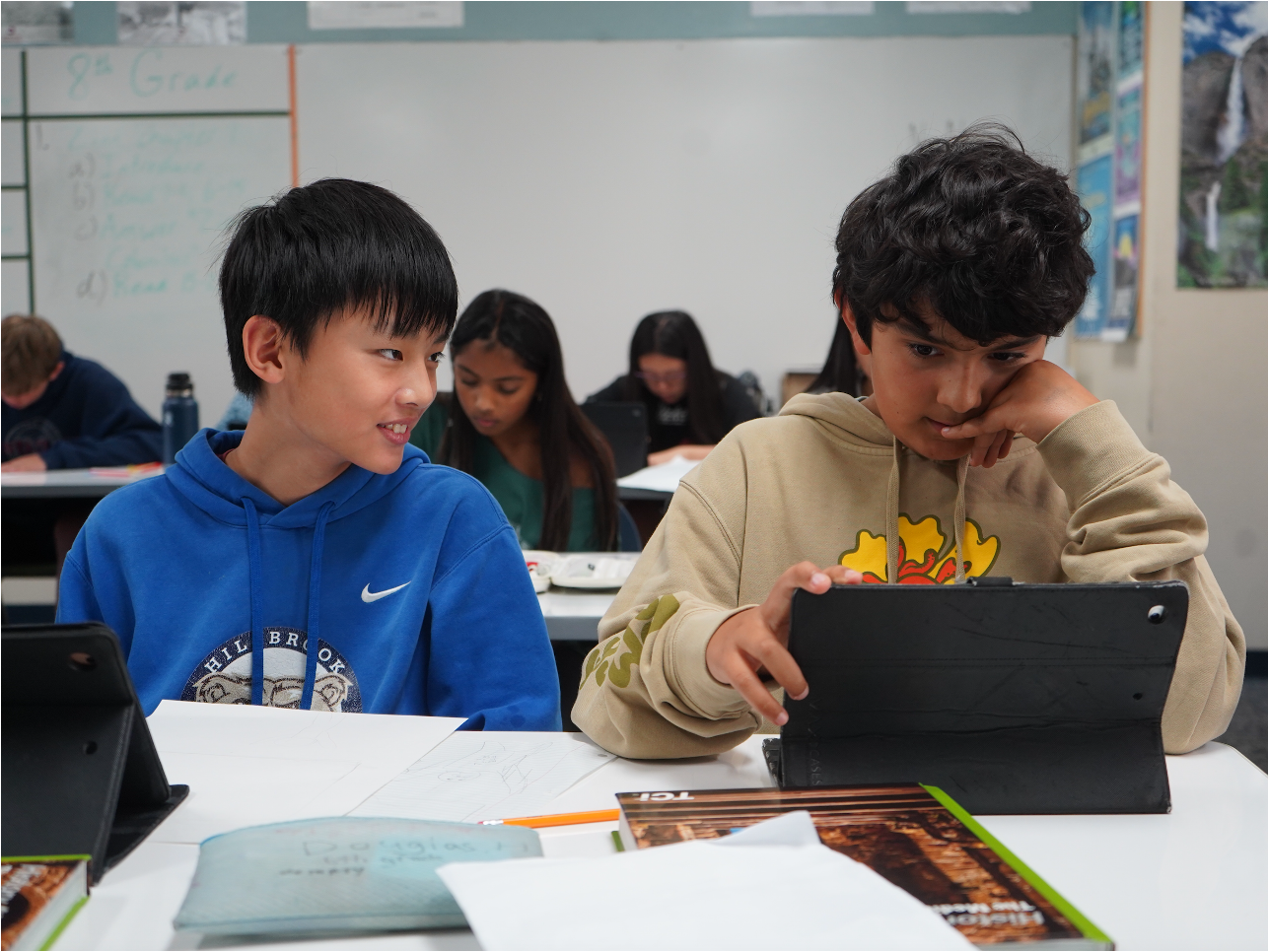“Something’s value depends how rare it is and how much people are willing to pay for it. So even if [Ghanaians] didn’t use [gold] directly, they wanted it because Muslim and Italian people wanted it for trade.”
7th Grade World Historians are studying medieval civilizations of West Africa, after a culminating world religions field trip last week to three sites of worship. Reading in their textbooks, they partner-shared and made sense of questions like: where did gold and salt come from around 1000 C.E. and why were they valuable? What was the silent barter system and what were its benefits? Their teacher guided them to revise their written answers for clarity, for precision, for accuracy, and for elegance. Paraphrasing can be hard!
Something’s value depends how rare it is and how much people are willing to pay for it.
Comparing responses to peers and writing collaboratively supports all students in honing these skills, while dealing with fascinating content about early commerce—drum beats called people to visit piles of goods left unattended along the river, piles of gold dust were left as an offering, and the back and forth continued until the party offering the goods took the dust amount away, at which point the goods were “sold.” Students connected what they already know about salt and perspiration to the dangers of Saharan travel and marveled at the ways salt was used (including to build temples!).
They also are studying and drawing maps of the region’s major sites and geographic features, and beginning to investigate the similarities and differences between West African medieval societies and their West European counterparts, before diving into East Asian medieval societies in coming weeks. They reflected on modern adult jobs that they imagine use these same skills of closely reviewing information, answering specific questions in one’s own words, and compelling their reader with details, while remaining accurate. Our students see themselves as future lawyers, journalists, politicians, and more, all capable of these skills and knowledgeable about the ways historical people and systems mirror and also influence modern systems of power, valuation, trade, and migration today!

